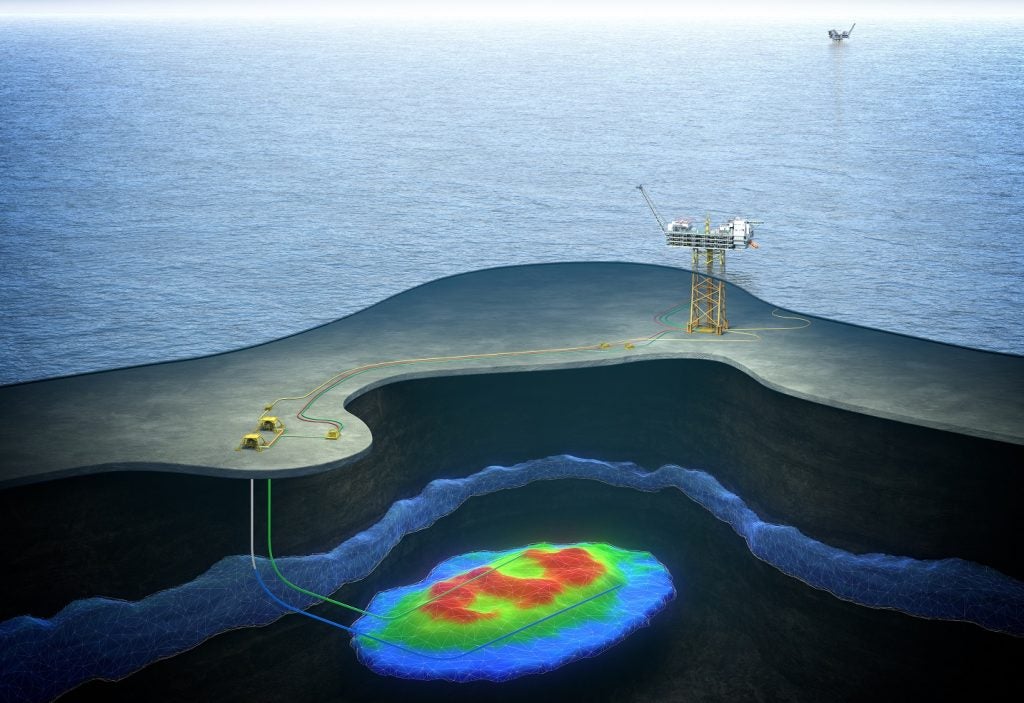
Darren Dickson, Spencer Ogden’s head of oil and gas contracts, outlined the situation, saying: “With this recent bounce back in the industry it’s really forced a lot of clients to panic, raise their rates and offer staffers contract roles. It’s been a very interesting time for us recruiters,” said Dickson.
“Clients have been caught on the hop. It’s prevalent not just in drilling companies, it’s in exploration, equipment manufacturers, consultancies and also in oil and gas installation and construction companies.”
The situation appears to be a re-run of a former boom time. “In 2004-2005 the market was very much like it is right now where there was a massive shortage of personnel, so naturally there was a huge age gap,” said Dickson.
The skills gap
“All of a sudden what you’re seeing now is a massive, massive skills gap where you have a lot of these graduates coming out of university but not really being mentored properly because there are so few lead engineers in the industry. That is really where the skills gap is, persons with seven to ten years experience,” says Dickson.Age also appears to be no barrier anymore. “A lot of these senior, senior engineers i.e. project managers of 50, 60, 70 years of age are re-emerging onto the market,” said Dickson.
See Also:
“Some of these (engineers) are virtually coming out of retirement as we speak to cover shortages in oil and gas installations and construction.” As for a solution to the problem in Dickson’s opinion, it is not a quick fix.
“It’s going to have to be the mind set of society in general to make engineering a lot more sexy,” said Dickson. “Short, medium, long-term, engineering needs to become the mind set of a lot of these kids growing up now. We need to encourage training and mentoring schemes within clients.”
How well do you really know your competitors?
Access the most comprehensive Company Profiles on the market, powered by GlobalData. Save hours of research. Gain competitive edge.

Thank you!
Your download email will arrive shortly
Not ready to buy yet? Download a free sample
We are confident about the unique quality of our Company Profiles. However, we want you to make the most beneficial decision for your business, so we offer a free sample that you can download by submitting the below form
By GlobalDataFor a UK perspective, Graeme Fyfe business director at Hays Oil and Gas UK believes “the offshore oil and gas sector in the Aberdeen area and round about it is in a kind of a bubble at the moment, compared to the rest of the UK. There’s quite a lot of skills shortages for companies.”
Again, age does not appear to be a barrier. “There’s a demand issue that’s compounding that even more,” said Fyfe.
“What we’re finding is that there’s guys working right up to the age of 70 looking for work at the moment and they’re finding it.”
In Fyfe’s opinion, there need to be changes on career advice and industry engagement.
“There are not enough people coming out (of university) with mechanical engineering or electrical engineering or process engineering,” said Fyfe.
“These people are needed and I don’t know what happens at that career advice stage but I’m not sure the message gets through that engineering is a high-profile professional and rewarding career. I think industry is maybe a bit guilty of not engaging with the schools.”
Thinking outside the offshore recruitment box
For a solution, Fyfe says looking outside of the oil and gas industry is an option worth considering. “I think one thing that the industry is going to have to do more and more of is recruit people from other sectors,” said Fyfe.
“There’s industries in England particularly, who struggle and are still struggling and that’s the biggest change, companies are being a lot more flexible now on what industry people are in when they recruit them, particularly for things like mechanical engineering because it is a cross industry.”
For a global view, Matt Halle, recruitment manager at NES Global Talent, said: “The offshore oil and gas industry is suffering from a shortage of engineers and an ageing workforce.” He also pointed out that technology advances have increased demand for specialists, such as in ultra-deepwater.
“There’s a shortage of experience in ultra-deepwater in places such as Brazil and West Africa.” Mentoring schemes and local content training programmes will help, but Halle also highlighted an ageing skilled workforce.
“Half of the world’s oil and gas engineers will be eligible to retire within the next ten years. This will present a huge problem unless companies can find talent to replace them. Mentoring will be key for knowledge transfer between age groups and between cultures,” Halle said.
“The industry needs to shake off the stigma of an ageing workforce and potentially unattractive industry by promoting opportunities for career progression, global travel and good earning potential.”
Andrew Rowlands is managing director at global engineering staffing company Talascend. “In total, the global energy challenge requires a spend of at least $500 billion per annum and around 500,000 professional engineers, according to a study by Atkins,” said Rowlands.
“Short term thinking will not suffice to meet this need. We need to aggressively attract young engineers into the industry. We are witnessing demand, especially for subsea engineers with operational well experience and Christmas tree specification experience,” he said.
“Otherwise, the demand for drilling managers, pipeline engineers, planners, estimators and contracts and procurement managers is also buoyant.”
But talent is getting thinner on the ground: “The ageing workforce is definitely a concern for our clients globally and is not just a question about the long term future. Projects are already in doubt that they can fulfil their requirements because the talent pool is diminishing so rapidly.” Solutions again revert to basics.
“That’s why we welcome interventions such as those by Sir John Parker, the new President at the Royal Academy of Engineering in the UK, who called recently for a 50% increase in university qualified engineers a year,” said Rowlands.
Four recruitment experts have provided a snapshot of oil and gas recruitment that are very similar.
It is clear that industry, educational establishments and governments would be wise to pay heed and encourage more young people to consider engineering courses before a gridlock occurs.




